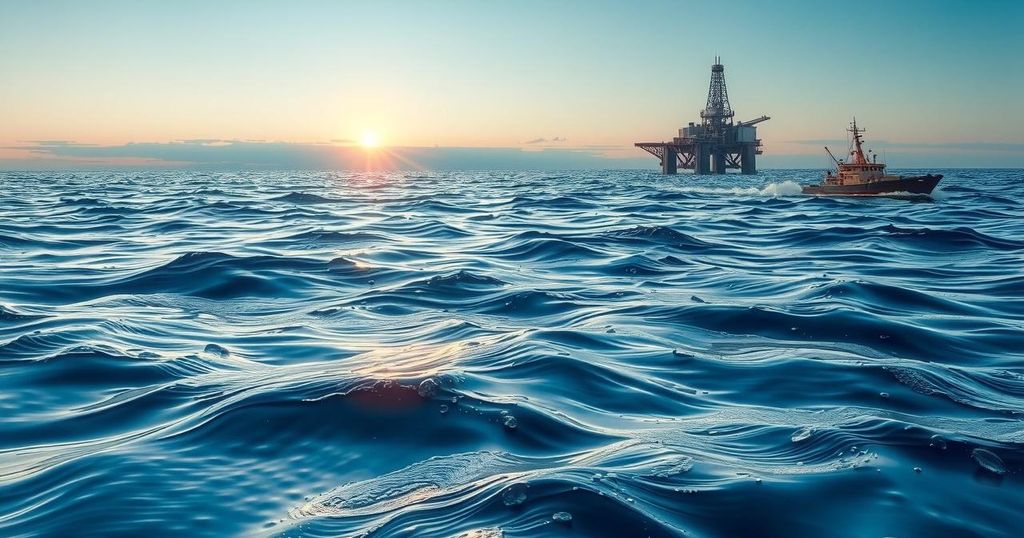Guyana has accused Venezuela of violating its maritime rights by allowing a naval vessel into its exclusive economic zone, inciting strong responses from both governments. President Irfaan Ali of Guyana signaled international support, while Venezuela dismissed the accusations and branded Ali’s remarks as provocations. Caricom calls for de-escalation and adherence to international law as tensions rise over the disputed territory.
Guyana and Venezuela have once again approached a point of contention due to an incursion by a Venezuelan naval vessel into Guyana’s exclusive economic zone (EEZ). This led the President of Guyana, Irfaan Ali, to raise alarms, accusing Venezuela of inappropriate actions in waters rich in oil resources. The incursion comes amidst a backdrop of previous violent encounters between citizens of both nations, raising tensions further.
President Ali indicated in a televised press conference that Guyana would notify its allies, including the United States, of the violations occurring in its territory. The region is crucial as it hosts significant offshore oil reserves under development by ExxonMobil, which has intensified the ongoing territorial dispute dating back to colonial times. The U.S. State Department condemned Venezuela’s actions, labeling them unacceptable and a direct violation of international norms.
Venezuela retaliated by dismissing Ali’s statements as unfounded and inflammatory. A communique from the Venezuelan government referred to President Ali as “the Caribbean’s Zelenskyy,” insinuating that he was inciting regional conflict through deceptive claims. Venezuela maintains that the territorial waters in question are subject to delimitation and do not legitimately belong to Guyana, criticizing Ali for allegedly seeking to escalate tensions for personal or nationalistic gain.
The Caribbean Community (Caricom) has called on Venezuela to withdraw its naval vessel and reminded both nations of their obligations under international law to de-escalate tensions. The organization underscored the importance of non-aggression and peaceful conflict resolution, stressing the need for both parties to honor their commitments to maintaining regional peace, specifically referencing the 2023 Argyle Declaration aimed at fostering harmony in the Caribbean.
The current dispute is part of a protracted confrontation that intensified following Guyana’s oil discoveries after 2015. Venezuelan President Nicolás Maduro has aggressively pursued claims over the Essequibo region, which represents a substantial portion of Guyana’s territory. The territorial tension has seen varying moments of mediation efforts, with Caricom’s involvement aiming to facilitate dialogue and resolution between the two nations.
The ongoing territorial dispute between Guyana and Venezuela, precipitated by a Venezuelan naval incursion, highlights the complexities of sovereignty and resource rights in the region. Both nations have exchanged vehement statements, with Guyana reaffirming its claims backed by international allies, while Venezuela contests these assertions. The urgent call for peaceful resolution by Caricom emphasizes the critical need for diplomatic engagement to avert further escalations.
Original Source: trinidadexpress.com






